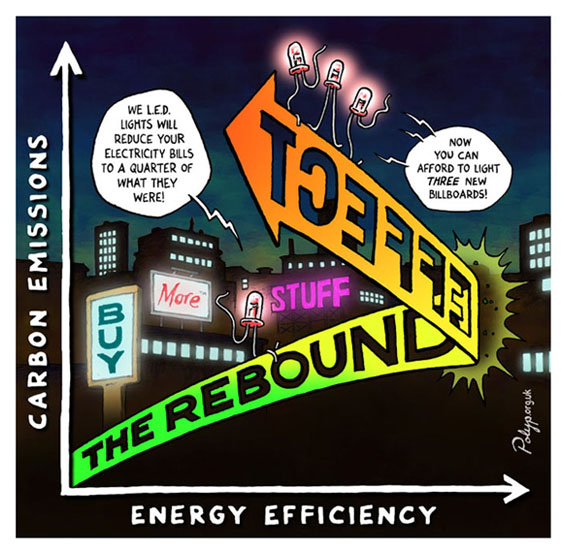It is great to see an attempt to put degrowth ideas into a straightforward form that can be taken into political debate. However, the selection of points is critical and I am not convinced that this is the right selection. I'll just take issue with two:
“No bank should lend more than its deposits. Banks cannot be allowed to create money out of thin air, while all the rest of us have to work hard just to get by.” There are in effect two points being made here, firstly that loans should not exceed liabilities and secondly that money should not be created by banks (presumably private banks rather than Central Banks). There are some strong counter-arguments to both ideas. I do not claim to be an expert on this but will try to summarise the counter-arguments as I understand them.
Firstly, that this view misrepresents the nature of bank lending. Most bank lending has always involved the extension of credit in return for a share of the proceeds of an enterprise. We can object to the accumulation processes that underpin this, since in capitalist societies this generally involves one or another kind of theft (primitive accumulation and expropriation of surplus value) but why should the bank have to equate its reserves to its loans? That would freeze the supply of credit for the many things we need to get done, for example in making an energy transition. This practice, known as fractional reserve banking (the reserve is a fraction of the liabilities) only becomes a problem if loans are made irresponsibly, as we saw in the mushrooming debt and its secondary bundles in the Great Financial Crash: this can be addressed through effective regulation, which involves the State (which of course needs much more democracy in its governance).
Secondly, the creation of money by the banks is what happens through the making of loans. The money created is destroyed on its repayment, except for the interest charged which is a profit to the bank (once its overhead costs have been covered). At present interest rates are low, but private banks can charge what they like (or what market competition will allow them to charge). It is this that needs to be controlled for the soaring profitability of financial investments, rather than investments in necessary production, is what has led to the highly imbalanced economies we have, not least in my country, the UK.
Now there is a problem in the ownership of banking – it is largely in private hands (and Germany offers a partial exception with its Sparkassen) and therefor isn't working in the public interest but in favour of shareholders. But that can be changed a) through strong regulation (which we had until the 1980's) and through diversifying the ownership of banking so there are public and community banks – unless you want the whole thing nationalised under State control and that isn't going to play especially well in the USA!
The manufacture of money through lending has been implicated in the growth of consumption, since citizens end up with more to spend, and it is indeed the case that there need to be controls on the practices of banks in making credit available to households in ever-increasing amounts. But let's not confuse this hypertrophy with the reasonable extension of credit to enable people to buy things in advance of having the money (e.g. house purchase or unexpected repair bills). Responsible lenders assess what people can pay and only offer on that basis – again this needs tight regulation. Tim Jackson and Peter Victor have modelled the impact of credit on emissions and do not find a clear relationship. However, the creation of money by banks (or by the State) has to be controlled by taxation, which has the function of destroying excess money, preventing inflation, for example. And it is necessary to have absolute and reducing caps on resource use as a counter to the otherwise unconstrained growth in resource use that money creation would cause. This was one of the 10 points in the Kallis original piece: the banking proposal was not one of those.
The following articles provide for some alternative arguments to the “debt free money” and 100% reserve banking ones:
"Each and everyone should have the freedom to choose how to live their lives free from illness, hunger or fear. Establish a permanent freedom income of $800 per month, for every American (sic)."
This is the idea of Universal Basic Income (UBI). Are we ready to propose this though? Again there are contrary views. I do not (yet) have a clear position on UBI but think it is fair to indicate what terrain the necessary debate (and analysis of evidence) needs to cover.
Firstly, what alternatives are there? Perhaps the most relevant one is the Job Guarantee whereby the government is the “employer of last resort”. This has had some coverage in the degrowth literature. Pavlina Tcherneva has made a comparison of the two schemes suggesting that, among other things, the JG could be more environmentally friendly than UBI. Or would it be better to spend the money on the “social wage”, notoriously low in the USA. Universal public healthcare would be a start. Affordable childcare would make a transformatinal difference to families on low incomes. Put these things together with the proposal for reduction of working hours and you have a recipe for a more caring society.
Secondly, what would be the macroeconomic impacts of UBI? Again Tcherneva's critiques are worth reading (from a post-Keynesian position as is Michael Roberts' Marxist critique).
Thirdly, what is our understanding of the social consequences? What will people do with the released time? Do we just leave it to them and the market? It seems potentially naïve to think that it is going to lead to the renaissance of artisan culture and conviviality. It is easy to see this through an educated middle class alterntive-society-friendly lens but at least as likely for some deprived and de-cultured sectors is expenditure on recreational drugs and pornography. What social policies for cultural construction would be needed to turn UBI into a real possibility for social and cultural transformation.
Finally, what of Clive Spash's suggestion (at the Budapest degrowth conference) that far from the release of an automation dividend as the nature of work changes, it is more likely that in coming decades the collapse of fossil fuels and their energy subsidy to economy and society will lead to a need for more hours of more physical labour.

Environmental protection is needed because we take useful things out of nature and put useless or harmful things back in. The resulting depletion and pollution have reached harmful, unsustainable levels. We know that voluntary behaviour change, led by an elite that encourages, fosters and politely ‘nudges’ the masses, won’t do it. Legislated solutions are needed on the principle of ‘I will if y...

Degrowth: lost in plurality? There seems to exist a gap in the degrowth discourse around the question of how to move towards a degrowth society. This brings to our attention an important concept - that of strategy. Here, we will use the word ‘strategy’ to refer to how the ends (i.e. a degrowth society) is achieved by the means. Having spent a number of years probing into the degrowth discourse...
Welche Auswirkungen hat die Beschäftigung mit Degrowth für verschiedene Bewegungen, die beim Projekt "Degrowth in Bewegungen" dabei waren? Darüber sprechen Olaf Bernau (afrique europe interact), Friederike Habermann (Ecommony, MOVE Utopia), Theresa Klostermeyer (Deutscher Naturschutzring) und Werner Rätz (Attac), moderiert von Nina Treu (Konzeptwerk Neue Ökonomie) bei einer Podiumsdiskussion i...